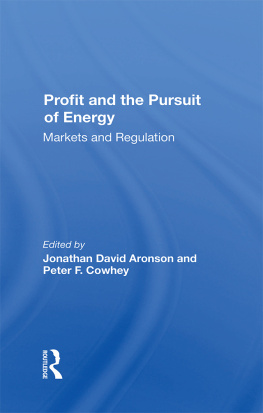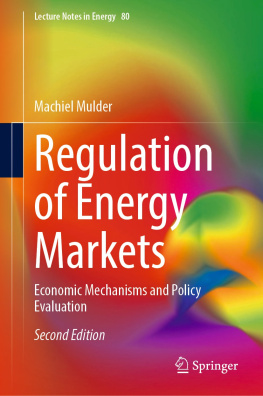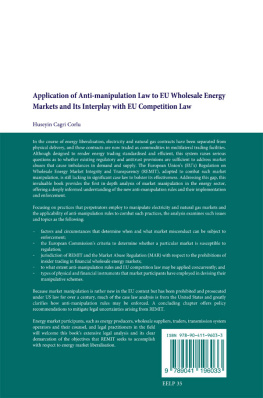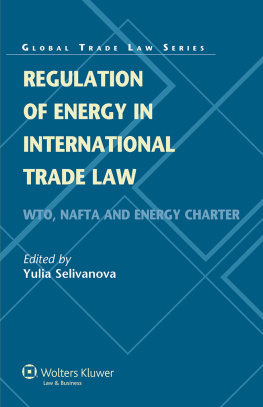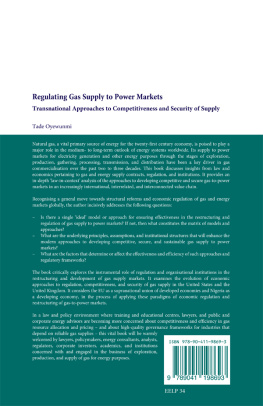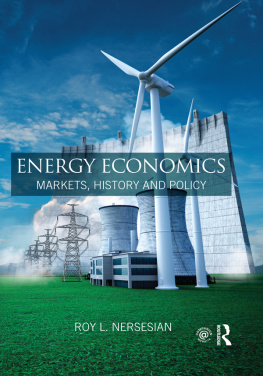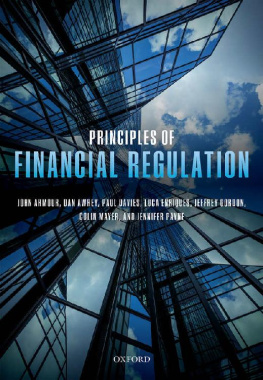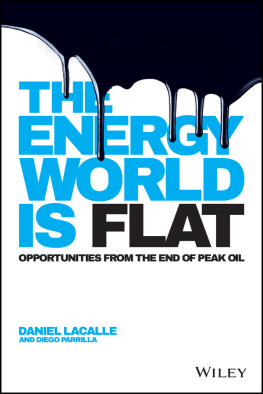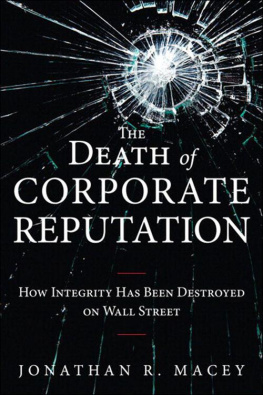Profit and the Pursuit of Energy
Also of Interest
Oil Strategy and Politics, 1941-1981, Walter J. Levy, edited by Melvin A. Conant
Resource Management and the Oceans: The Political Economy of Deep Seabed Mining, Kurt Michael Shusterich
International Dimensions of the Environmental Crisis, edited by Richard N. Barrett
U.S. Foreign Economic Strategy for the Eighties, Timothy W. Stanley, Ronald L. Danielian, and Samuel M. Rosenblatt
Soviet Economic Planning, Fyodor I. Kushnirsky
Oil, Money, and the Mexican Economy: A Macroeconometric Analysis, Francisco Carrado-Bravo
Critical Energy Issues in Asia and the Pacific: The Next Twenty Years, Fereidun Fesharaki et al.
OPEC and Natural Gas Trade: Prospects and Problems, Bijun Mossavar-Rahmani and Sharmin B. Mossavar-Rahmani
Transitions to Alternative Energy Systems, edited by Thomas Baumgartner
Solar Energy and the U.S. Economy, Christopher Pleatsikas, Edward A. Hudson, and Richard J. Goettle IV
Alcohol Fuels: Policies, Production, and Potential, Doann Houghton-Alico
* Energy Futures, Human Values, and Lifestyles: A New Look at the Energy Crisis, Richard C. Carlson, Willis W. Harman, Peter Schwartz, and Associates
* Living with Energy Shortfall: A Future for American Towns and Cities, Jon Van Til
Technology and Soviet Energy Availability, Office of Technology Assessment
Technology, International Economics, and Public Policy, edited by Hugh H. Miller and Rolf R. Piekarz
OPEC: Twenty Years and Beyond, edited by Ragaei El Mallakh
Available in hardcover and paperback.
Profit and the Pursuit of Energy
Markets and Regulation
edited by Jonathan David Aronson and Peter F. Cowhey
First published 1983 by Westview Press, Inc.
Published 2019 by Routledge
52 Vanderbilt Avenue, New York, NY 10017
2 Park Square, Milton Park, Abingdon, Oxon OX14 4RN
Routledge is an imprint of the Taylor & Francis Group, an informa business
Copyright 1983 Taylor & Francis
All rights reserved. No part of this book may be reprinted or reproduced or utilised in any form or by any electronic, mechanical, or other means, now known or hereafter invented, including photocopying and recording, or in any information storage or retrieval system, without permission in writing from the publishers.
Notice:
Product or corporate names may be trademarks or registered trademarks, and are used only for identification and explanation without intent to infringe.
Library of Congress Cataloging in Publication Data
Main entry under title:
Profit and the pursuit of energy.
(Westview special studies in international economics and business)
Includes index.
1. Energy industries. I. Aronson, Jonathan David. II. Cowhey, Peter F., 1948
III. Series.
HD9502.A2P763 1983 338.2'728 82-13424
ISBN 13: 978-0-367-28441-1 (hbk)
Westview Special Studies in International Economics and Business
Profit and the Pursuit of Energy: Markets and Regulation edited by Jonathan David Aronson and Peter F. Cowhey
Among the books on the world energy crisis, on technological possibilities for self-sufficiency, and on various energy sources, this is one of a very few to address the practicalities of government regulatory responsibilities versus the pursuit of profit in the private sector and to look at the processes, logistics, and complex interactions among private energy companies, financial sectors, and national governments.
The authors provide answers to such questions as: How do oil company operations influence government policies? What kinds of energy projects can be financed by existing financial institutions? How does the availability of insurance affect innovations in energy? They also examine how major investors and governments make decisions about the management of the volatile mix of political, economic, and technological risks that buffet the energy sector; critique the conventional wisdom concerning the major fuels; and project the likely evolution of the world energy market over the next decade.
Dr. Aronson is an associate professor in the School of International Relations at the University of Southern California and for 1982-1983 is on leave as a Council on Foreign Relations International Affairs Fellow in the Office of the U.S. Trade Representative in Washington, D.C. He is the author of Money and Power: Banks and the World Monetary System (1978) and the editor of Debt and the Less Developed Countries (Westview, 1979). Dr. Cowhey is an assistant professor of political science at the University of California in San Diego. In addition to acting as a consultant to the U.S. Department of Energy, the State of California, and many independent organizations, Dr. Cowhey is author of The Problems of Plenty: Energy Policy and International Politics (forthcoming).
It is more interesting to be provocative than right.
To three who have been both: Wanda Jablonsky, Edith Penrose, and Susan Strange
Contents
, Joseph S. Nye, Jr.
, Peter F. Cowhey
, Jonathan David Aronson with Christopher Cragg
, Michael Gaffen
, Merrie Klapp
, Kermit R. Kubitz
, Zvi Adar and Tamir Agmon
, Jonathan David Aronson and Charles Rudicel Proctor
, Peter F. Cowhey
- Tables
- Chapter 1
- Chapter 2
- Chapter 3
- Chapter 5
- Chapter 6
- Chapter 7
- Figures
- Chapter 3
The 1970s was a difficult decade for the United States in energy policy. At the beginning of the decade, the United States imported 3.5 million barrels of oil a day, about a quarter of our needs, at roughly $2.00 per barrel. We were the world's largest producer, at 11.3 million barrels per day. In 1967, our surplus capacity had allowed us to easily defeat an Arab oil embargo triggered by the June war. By the end of the decade, we were importing 8.5 million barrels per day, or nearly half our needs, at fifteen times the nominal price, and our home production was declining. The painful experience of the 1973 Arab oil embargo did not save us from repeating mistakes when the Iranian Revolution curtailed production in 1979. The president called the situation a "clear and present danger to our national security."
Our national energy policy debate in the 1970s was frequently confused and poorly focused. There was often a failure to distinguish the longterm (i.e., thirty-to-forty-year) transition from fossil fuels to new sources of energy from the short-term (i.e., within ten years) problem of coping with increased dependence upon Persian Gulf oil. Ironically, given our fascination with high technology and the power of lobbies for research and development, energy was one of the rare cases in which government could be criticized for overemphasizing the long run at the expense of the short run. It was far easier to find funds for breeder reactors and fusion research than to launch an adequate strategic petroleum reserve or to fund research for conservation.
Ostensibly, the United States always considered energy as a security problem involving significant risks. In reality, however, U.S. policies focused more heavily on price and economic effects than on the security dimensions of the issue. In 1959, President Eisenhower created a mandatory quota program to reduce oil imports, allegedly for national security reasons, but its real political roots were in trade protectionism. As a security measure, the program was a failure, for it stimulated artificially high production levels that eroded domestic reserves rather than creating stockpiles and spare capacity. Ironically, in 1970 a cabinet task force recommended the gradual elimination of these quotas on the grounds that they did little for national security while imposing high prices on our economy. This occurred just at the time that U.S. domestic oil production was peaking. Imports had risen to 30 percent of our oil consumption by the time of the 1973 oil embargo.


